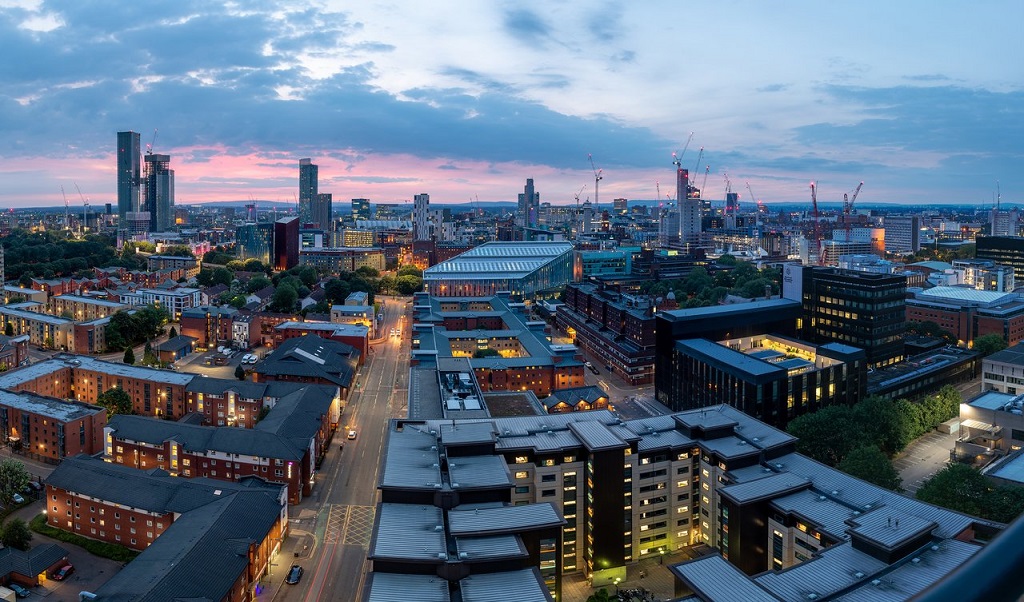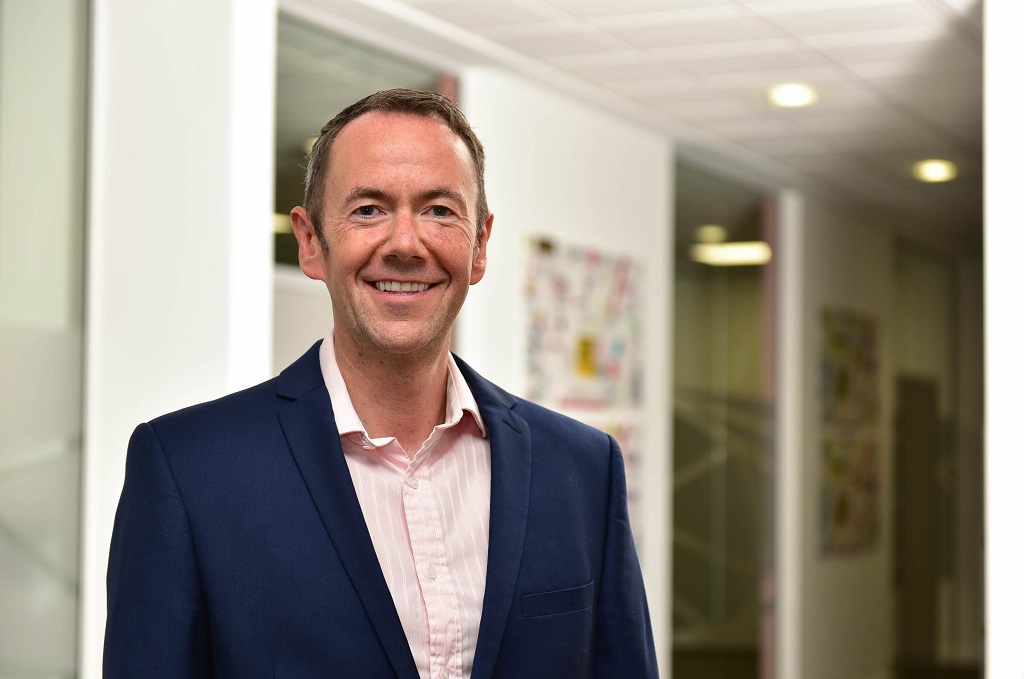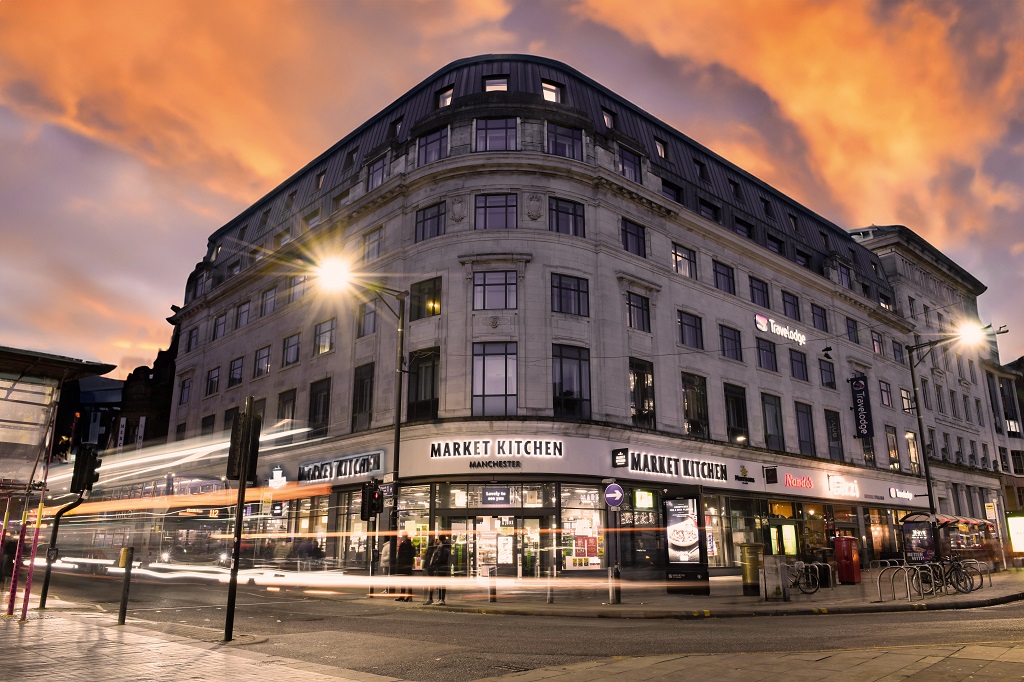Commentary
Manchester returns to MIPIM with a vision for future generations
For Greater Manchester, MIPIM provides a unique opportunity to raise the profile of the city to international investors and other global cities, writes Joanne Roney of Manchester City Council
With so many transformational projects in progress, returning to MIPIM in 2023 provides the opportunity to reposition the city region on the international map as a leader in sustainability, culture, innovation, and community-driven placemaking – while encouraging others to join us on the journey.
The Manchester @ MIPIM Partnership aims to use our return to look ahead, casting a spotlight on how the collective choices we make now will shape our future.
Under the theme, Generation Manchester, we’ll be using our time at MIPIM 2023 to show the progress we are making to create a greener, fairer, and more prosperous city region of tomorrow.
A greener future
One of the biggest challenges that this generation and future generations will face is the climate crisis. Greater Manchester’s response is a science-based target to become net zero by 2038, twelve years ahead of the national target.
To meet this ambitious target, the region’s public and private sectors are working hard to create innovative, low-carbon buildings that will stand the test of time. Using innovative materials and construction methods, nature-based solutions, renewable energy, and green tech to change the way we live and work.
NOMA is a prime example of sustainable development. This new neighbourhood is delivering over 4m sq ft of refurbished office, retail, and leisure space as well as homes and hotels all meeting BREEAM Technical Standards and setting the blueprint for sustainable development in the city.
Meanwhile, the Alberton building in St Mary’s Parsonage will deliver an operationally net zero office building, built to low-carbon specification while also utilising circular economy principles to reduce waste. This £93m new-build is dedicated to a greener, more sustainable future. It is a precedent for what we expect from new developments in our city region going forward.
However, public and private sectors also recognise the work that needs to be done in retrofitting Greater Manchester’s existing building stock to ensure they work for us in meeting our net zero carbon ambitions, whilst also investing in our people and developing the skills we will need for the future.
The built environment accounts for 40% of the UK’s carbon footprint and 80% of the buildings that will exist in 2050, already exist. Projects like The Great Northern Warehouse will protect the heritage of the city while making buildings more sustainable and reducing carbon emissions across the city. Converting the grade two-listed warehouse will provide 120,000 sq ft of office space andshops, as well as three new residential blocks.
As a city region, we’re dedicated to becoming greener. Last year we opened the first public park in the city centre in more than 100 years, the 6.5-acre Mayfield Park. We know how important access to quality green space is for the wellbeing of our residents, and we’re working with developers to ensure that green investment is a core tenet of future development.
Alongside this, the city region and Transport for Greater Manchester are working to create an affordable and sustainable integrated transport system, The Bee Network, which combines low-carbon transport with active travel, encouraging people to step away from cars for short journeys.
This is a once-in-a-generation £1.5bn programme of investment for our region, creating 1,800 miles of walking and cycling routes, and 2,400 new crossings to connect every neighbourhood, high street, and public transport hub in Greater Manchester.
A fairer future
We also have a mission to create a fairer society, and community-based placemaking forms a huge part of the future of the city. Our private sector developers are working with communities to devise how future projects can benefit them, creating shared spaces and amenities that ensure communities can thrive, such as the creation of Manchester’s first new city-centre school in almost 20 years to provide for families in the new skyscrapers around Great Jackson Street and Deansgate Square.
A significant part of creating a fairer Greater Manchester lies in innovation and taking the city back to our innovative, manufacturing roots.
A more prosperous future
Across the city region we’re creating innovation zones like the North East Growth Corridor and Atom Valley in Rochdale. This will be a hub for innovation in advanced materials, manufacturing, and green technologies, offering world-class facilities for research and innovation while creating high-quality jobs for residents.
This growth location, alongside others like the Salford Innovation Triangle, Wigan & Bolton Growth Corridor, and regeneration around Manchester Airport, will become a catalyst for levelling up. Alongside a renewed and business-led focus on skills, we’ll ensure that Greater Manchester has future high-quality jobs and opportunities – creating sustainable growth that our residents can share in the success of.
Manchester is also about to enter an exciting new era for culture. As a city region long praised for its creativity, radical thinking, writers, musicians, actors, and more, Manchester is no stranger to the power of the arts. However, with the opening of Factory International in June 2023 – a state-of-the-art 143,000 sq ft permanent home for the Manchester International Festival – Manchester is about to become a global hub, attracting some of the biggest names in art, music, and culture.
For Generation Manchester, the future is bright and the work that our public and private sector is doing now is laying the foundation for a greener, fairer, and more prosperous city region.
MIPIM 2023 is a chance to not only showcase this vision to international investors but to show that we’re working on building that future today.
Through continued public and private sector collaboration and the new international relationships forged at MIPIM 2023, we can create a city region where future generations can thrive.
- Joanne Roney is the chief executive of Manchester City Council






